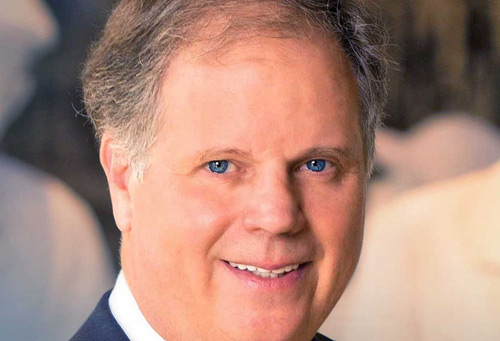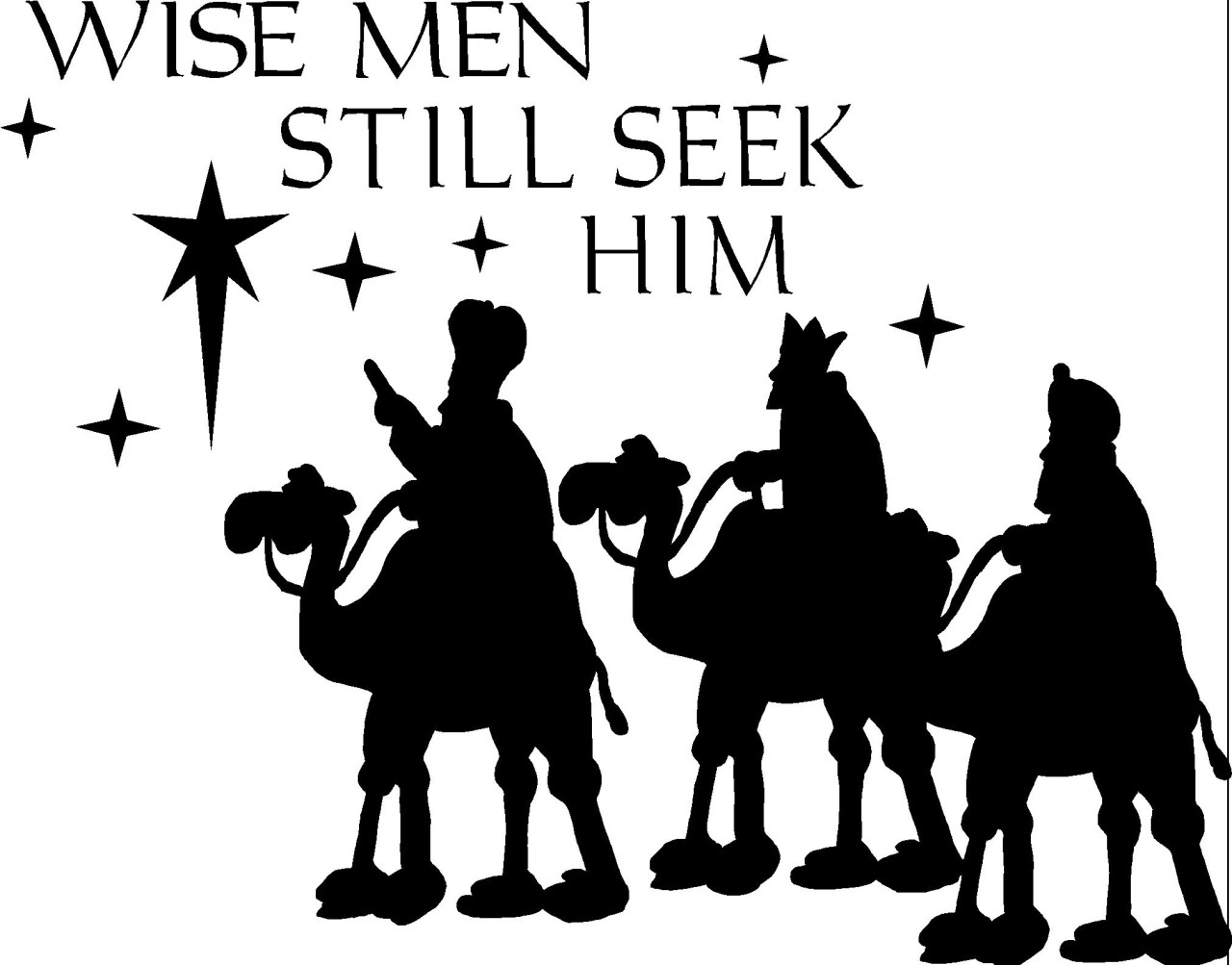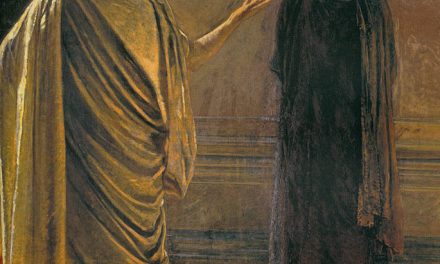I can’t vote in the December 12th election in Alabama, but I know many voters who can. As someone who grew up in Mobile, Alabama, I know from personal experience that Alabama is a complex place and that it does a tremendous disservice to residents of that state to offer oversimplified caricatures of bigots, fundamentalists, racists, and stupid country folk. At the same time, the Roy Moore phenomenon is hard to explain and it is harder still to understand how some Catholics can rationalize a vote for him in the upcoming U.S. Senate race. For anyone on the fence, this brief post will argue that a vote for Doug Jones more closely aligns with Catholic values than a vote for Roy Moore or the decision to not vote at all.
For starters, why should Catholics vote at all? Why should Catholics get involved in the messy realm of politics? Fundamentally, because we believe that God created us as social creatures who need each other to thrive. We live in human communities and those communities are shaped by policies crafted and implemented by elected representatives. It is a far from perfect system. But participation in the system means that you have a voice to share your values and influence decisions. We participate in politics not out of self-interest but out of self-gift: to make our communities better places for all to live. If you find yourself asking only how a politician’s platform will make your life better, you’ve missed the point of Christian participation in politics. Christian participation in politics is for the common good. And as the U.S. bishops have repeatedly urged Catholics, special concern for those most vulnerable must be at the forefront of our consideration. In Alabama today, consider those who are most vulnerable: economic inequality is extreme in the state, the refusal to expand Medicaid has had dramatic consequences for those most poor in the state, white supremacy is on the rise as a legitimate social movement, ICE agents are conducting raids and detaining immigrants at a rate higher than anywhere else in the Deep South, there remains an achievement gap between black and white students in Alabama public schools, women continue to face unplanned pregnancies, and the life they carry within them remains vulnerable as well.
But neither Republican or Democratic party platforms align with Catholic teachings, you say. I’ll sit this one out because to vote for either candidate is complicity with evil. Okay, yes, you are right on the first point. There is no perfect Catholic candidate in this election. You will have to employ the ethical method of proportionality. But in fact the decision here between a vote for Moore, a vote for Jones, and a choice not to vote all have both values and disvalues embedded in them. The right choice is the choice that involves the least amount of harm while advancing the greatest good for the most people. If you choose not to vote and Moore is elected because you did not vote for Jones, you are as responsible for the harm Moore causes as those who voted for him. You don’t get to say later that your non-participation frees you from complicity in evil.
Catholics should not be single-issue voters. If one looks at the church’s teachings one will find many ethical issues that surface as worthy of careful discernment in this election season:
Church teaching argues that life is sacred and should be respected from conception to natural death. Direct abortion and direct euthanasia are described as intrinsically evil acts that must always be rejected. (FCFC 22).
Church teaching argues that genocide, torture, and targeting of noncombatants in acts of terror or war can never be justified. Nor can violations of human dignity such as acts of racism, treating workers as mere means to an end, deliberately subjecting workers to subhuman living conditions, treating the poor as disposable, or redefining marriage to deny its essential meaning (FCFC 23).
Church teaching argues that the current extent of environmental degradation has become a moral crisis especially because it poses a risk to humanity in the future and threatens the lives of poor and vulnerable human persons here and now… The failure to respond to those who are suffering from hunger or lack of health care, pornography, redefining civil marriage, compromising religious liberty, or an unjust immigration policy are all serious moral issues that challenge our consciences and require us to act. These are not optional concerns which can be dismissed. (FCFC 29).
In Forming Consciences for Faithful Citizenship, the US bishops state that a Catholic “cannot vote for a candidate who favors a policy promoting an intrinsically evil act, such as abortion, euthanasia, assisted suicide, deliberating subjecting workers or the poor to subhuman living conditions, redefining marriage in ways that violate its essential meaning, or racist behavior, if the voter’s intent is to support that position.” (FCFC 34). But “there may be times when a Catholic who rejects a candidate’s unacceptable position even on policies promoting an intrinsically evil act may reasonably decide to vote for that candidate for other morally grave reasons. Voting in this way would be permissible only for truly grave moral reasons…” (FCFC 35).
I’ve heard friends in Alabama say that they could never vote for Jones because as Christians they are opposed to abortion. But abortion is a morally complex issue that is deeply connected to other political issues like health care, respect for women as fully human, and economic disparities. It is too complex an issue to treat sufficiently in a single blog post, but as I interpret church teaching on the issue of abortion, I find it helpful to consider the way the issue has complex layers.
The implication of FCFC as cited above is that a Catholic voter can in fact vote for a Democratic candidate who supports a woman’s right to terminate a pregnancy, if the voter’s intent is not to support the candidate’s position on that particular moral issue but there are sufficiently grave reasons for supporting the Democratic candidate who is pro-choice. This is the proportionate judgment. Are there sufficiently grave reasons for voting for Doug Jones despite his support of women’s reproductive freedoms? Yes. Roy Moore is a sexual predator. He is stupid. He’s broken his oath of office and said he is not bound by the U.S. Constitution. His method for interpreting Scripture is dangerous. He is anti-immigrant, anti-Muslim, anti-gay. He is unfit for the office of Senator. He is in the mold of Trump in his lack of concern for the poor and for people of color, and his lack of empathy for female victims of sexual assault. By contrast, Doug Jones has a proven record as a person of integrity, intelligence, and work ethic. He seems to care about the rule of law and especially about those most vulnerable in Alabama. In addition, his policies, if implemented, might actually create an Alabama in which women facing unplanned pregnancies felt more empowered to give their babies life, especially if they had jobs, housing, health care, and a workplace free from discrimination and violence. Abortion rates in Alabama dropped from 2011-2014 and reached an all time low in 2014, during Obama’s second term. If prolife voters are most concerned about supporting women who face difficult decisions and created a culture that respects life at all stages, one could argue that a close look at Jones’ platform reveals more alignment with these goals than the trumped up anti-abortion rhetoric of the GOP that simultaneously wants to pass a tax bill that privileges the wealthy.
Being a Christian is not easy. Being a citizen is not easy. But in this election, the choice is not as difficult as it might look.






” . . . his support of women’s reproductive freedoms”??? Wow! Interesting what passes for Catholic moral theology out there in California.
I used that phrase because it is not clear to me that Doug Jones believes abortion is a moral good. His position is more nuanced – he supports women’s reproductive decision making.
The distinction is important because Christians live in a pluralist society. Christian politicians have an obligation to secure the common good, not impose Christian beliefs on non-believers. On every issue must be sure that our policies, motivated by faith, persuade believers and non-believers. The backdrop of this whole conversation, of course, is the emerging understanding that women should be seen as agents who are capable of making decisions. For much of our moral tradition, influenced as it was by patriarchy, women were not seen as having equal dignity with men and their reproductive powers were under male control.
Many women facing unplanned pregnancies perceive few options. The church offers a lot of judgment, shame-based rhetoric, and sin-talk but not a lot of actual help. Until every parish has a sliding scale infant day care program and early childhood education center, and women can be sure they won’t go bankrupt if they have unforeseen “complications” in childbirth, — among many other social factors that influence the practical decision making of women who are pregnant– then women will continue to make difficult decisions based on their own circumstances. My understanding of the platform of Doug Jones is that he wants women in Alabama to be the ones to make those decisions.
If it was not clear in the post, I celebrate the lowest abortion rate since Roe, which occurred in 2014- during Obama’s second term. I hope that Christians can build grassroots movements, including at the parish level, to create what St. John Paul II described as a culture of life. I don’t think Roy Moore even understands what that phrase really means.
Hi Emily. I’m not sure we should describe Jones’ wildly extreme position on abortion as being at the service of women. Most of the countries who best respect women’s agency have far more restrictive laws on abortion than he could ever support, and–in many cases–those laws are driven by the political influence of women. The United States has one of the most outrageous abortion policies in the world (which should not surprise us…given the how patriarchal we are) and anyone who cares about nonviolence and justice for the vulnerable ought to be calling out extreme positions–like that of Jones–whenever we find them. We absolutely should not be supporting them or finding ways of excusing them.
If we truly have a preference for the most vulnerable, we can’t let him or anyone else off the hook with a claim like, “We don’t need to worry about justice for X; what we need to do is preserve the moral agency of Y.” When X is LGBT persons, and Y are employers, for instance, that’s not how a preference for the most vulnerable works, right? When X is young actresses and Y is Hollywood producers, that’s not how it works, right?
Abortion is more complex that those two cases, because when X is prenatal children and Y are their mothers, Y is often (though not always) a vulnerable population as well. But in your analysis above, justice under law for voiceless and unimaginably vulnerable prenatal children falls completely out of your analysis. Their protection-worthy dignity and vulnerability is erased from the scenario. You think it is good that there have been fewer abortions in recent decades (and use it to make a questionable political point: https://www.snopes.com/abortion-rates-presidencies/), but never say why fewer abortions is a good thing. Actual justice–under law–for prenatal children is nowhere to be found. We ought to support women to the fullest extent possible, but we ought to protect prenatal children to the fullest extent possible.
Trying to enact such justice, even if one is a Christian, is no more “imposing Christians beliefs” on a pluralistic culture than Christians working to enact other protections of the law for other vulnerable populations…such as they did during the civil rights movement…was an example of this.
Instead of encouraging people to vote for someone who countenances mass slaughter of the most vulnerable without even a hint of restriction, Catholics should be trying to convince the Democratic party to refuse to run such candidates and instead start wrestling the complexity of what it means to protect and support both women and prenatal children.
Catholic should sit out this race…or vote for a third party. Moore’s horrific candidacy is a non-starter. But Jones’ position is just too extreme for us to support.
“Are there sufficiently grave reasons for voting for Doug Jones despite his support of women’s reproductive freedoms? Yes. Roy Moore is a sexual predator. He is stupid. He’s broken his oath of office and said he is not bound by the U.S. Constitution. His method for interpreting Scripture is dangerous. He is anti-immigrant, anti-Muslim, anti-gay. He is unfit for the office of Senator.”
My intent is not to defend Roy Moore. Honestly, I don’t know what I would do if I were an Alabaman, because I could not bring myself to vote for either Moore or Jones. Nonetheless, your examples of “other morally grave reasons” is very unpersuasive (one of your reasons literally says, “he is stupid.” And it’s your second point! I would have expected better reasoning from a professor.). Although allegations of sexual assault are often sufficient to disqualify a person from a Senate seat as a matter of propriety and to maintain a high standard of conduct for our leaders, I hardly think that mere allegations equate on a moral plane with another candidate’s unequivocal and fairly extreme (even for a moderate Democrat) support of abortion at any point in pregnancy. Jones was asked directly if he would support restrictions on abortions after 20 weeks, and his response was that nothing should infringe a woman’s right (that appears to be a no). Sure, the allegations against Moore should give anyone pause and could be sufficient reason not to vote for him if the voter thinks the allegations are credible. But that does not mean that a voter should turn and embrace another candidate who supports a much more serious and morally grave threat to a class of people who have no ability to protect themselves.
Charlie, I respect your scholarship on this issue but I find it irresponsible for you to recommend that Catholic voters abstain from this election or vote for a third party candidate that has no chance of winning. Have we learned nothing from 2016?
I feel like we’re having an argument about methodology in which you are arguing in absolutes and I’m proposing proportionalism.
Don’t misrepresent my support for Jones as a support for direct abortion or a failure to respect life in the womb. I want us all to build a culture of life in which all women who are pregnant have the social supports they need to give their babies life. I also think racism is anti-life. Sexism is anti-life. Nativism is anti-life. Poverty is anti-life. Capitalism is anti-life. I think Moore is too stupid to actually have any positive impact as a pro-life Senator and that anyone who votes for him thinking that he will make the state more pro-life is delusional. But I don’t celebrate abortions. Instead, I see Jones’ overarching platform as more likely to have a positive impact on the ability of women facing unplanned pregnancies to choose life for their unborn children.
I’m not alone in my focus on the agency of women: In life of the #metoo campaign and growing awareness of the ways that women face threats to their dignity and agency in our culture, many are becoming more suspicious of a pro-life movement that doesn’t first work to address sexism in all its ugly forms, including ecclesial. You rightly focus on the dignity of the child in the womb and I don’t fault you for that. Our positions have a lot of common ground. But if Moore is elected because Catholics can’t stomach a vote for Jones, more women and children will suffer.
I’m from Alabama and I voted for Jones, convinced he’ll likely impact abortion rates and a whole lot of other life issues in a positive way. I was also certain that Moore while he wears the prolife label, would have no positive effect on abortion, will hurt other life causes, and sullies the name and integrity of Christianity. This is a morally grave reason to cast my vote with Jones. I’m a prolife voter but I’m also fairly over the whole SCOTUS packing strategy. Candidates will have to demonstrate more than how they’ll vote on justice nominations. And candidates like Jones, too, should be judged not just by their labels but their likely impact on life issues. The Voter’s Guide refers to the “art of the possible”. Determining who has a viable way forward requires discernment. It’s complex. We end up with different conclusions. Doug Jones was my conclusion as the best choice for lowering abortion rates. We should also note that the Guide cautions is to not throw out other issues even as we hold life issues as most important. Moore is egregious on these other issues. Stupid is a generalization, sure, but an apt one and, on balance, pretty darn charitable. His brain is impervious to facts. At the moment, he can’t admit that he lost. His impact on immigration, the environment, religious liberty, healthcare, tax policy, and overall public discourse would be horrific. I’m happy as a clam we handed his arse to him. He’s too big a fool to be given responsibility over people’s health and well being.
Question: Anyone here aware of stats on how Catholics in Alabama voted? That’s how I ended up here, searching for exit polling data on this.
Emily nailed it when she said…
“The church offers a lot of judgment, shame-based rhetoric, and sin-talk but not a lot of actual help. ”
Here’s why that is. The Church is not concerned primarily with the unborn, but in using this issue to, as politicians describe it, fire up the base.
Judgment, shame based rhetoric and sin talk do a great job of firing up the base, of providing Catholics with the experience so many have joined the Church to have, the pursuit of fantasy superiority. An enemy is created, and then the followers are written in to the story line as the heroes who will conquer the enemy etc. It’s a skillful mass manipulation technique which rallies the troops behind those who have appointed themselves to lead. The judgment, shame based rhetoric and sin talk is not about the unborn, because it does little to assist the unborn. It’s about clerical power, that’s who benefits.
If the Church was serious about the unborn it would stop shouting divisive slogans and closely partner with Planned Parenthood, because it is largely in their clinics that the decision is being made. You can’t influence a decision if you don’t have a seat at the table. If the Church was serious about the unborn it would be building it’s credibility by offering to raise any child that unready mothers don’t wish to have. If the Church was serious about the unborn it would be offering lots of actual help, instead of focusing on the hateful fantasy superiority shame and blame circus.
The Church is not serious about the unborn.
The Church is serious about the Church.
Charles,
Forcing families to have children they don’t want is not automatically serving the unborn. In many cases, this will instead lead to a lifetime of torment which radiates out in all directions. In most cases, it will not be possible to predict ahead of time whether the person who is born in to a family which doesn’t want them benefits or is harmed.
Focusing on passing laws against abortion is a questionable method of serving the unborn because as the war on drugs should illustrate, if people want to do something bad enough they will find a way to do it, whatever the law says. As example, if Roe v. Wade is overturned those seeking abortions will simply travel to states where the procedure is still legal. The poor who can not travel will resort to the back alley as has long been the case all over the world. Laws against abortion will not end abortion, they will re-locate abortion. It’s not serious to focus on solutions which will not effectively serve the stated goal.
What would constructively address the problem is for unwanted children to find happy homes that actually wish to raise them. That should be the focus, along with helping families not find themselves in this situation in the first place. Planned Parenthood is already expert at assisting with contraception, so let’s talk about how the Church can become expert at raising unwanted children. These two powerful forces should be working together constructively, not yelling at each other. Anything less reveals a lack of seriousness, and unconstructive agendas which compete with serving needy children.
There should be an agent of the Catholic Church in every Planned Parenthood clinic who is there to offer to raise any children the parents don’t want. This does not require the Church to approve of abortion, it requires the Church to respond to abortion in a constructive effective manner. It requires the Church to walk the walk, instead of just talking the talk. It requires the Church to be a respectful partner, and appreciate the real world fact that Planned Parenthood is preventing far more abortions than the Church is.
Imho, we dramatically underestimate the Church’s ability to raise unwanted children. The Church is sitting on a trillion dollar global real estate empire whose primary purpose is to provide the clergy with a fancy stage upon which to perform. Which is more important Charles? Stained glass windows, or unwanted children who need loving homes? The next time you’re in Mass, look around at all the expensive beautiful clergy elevating waste surrounding you, and marvel at the incredible fact that it is not being challenged.